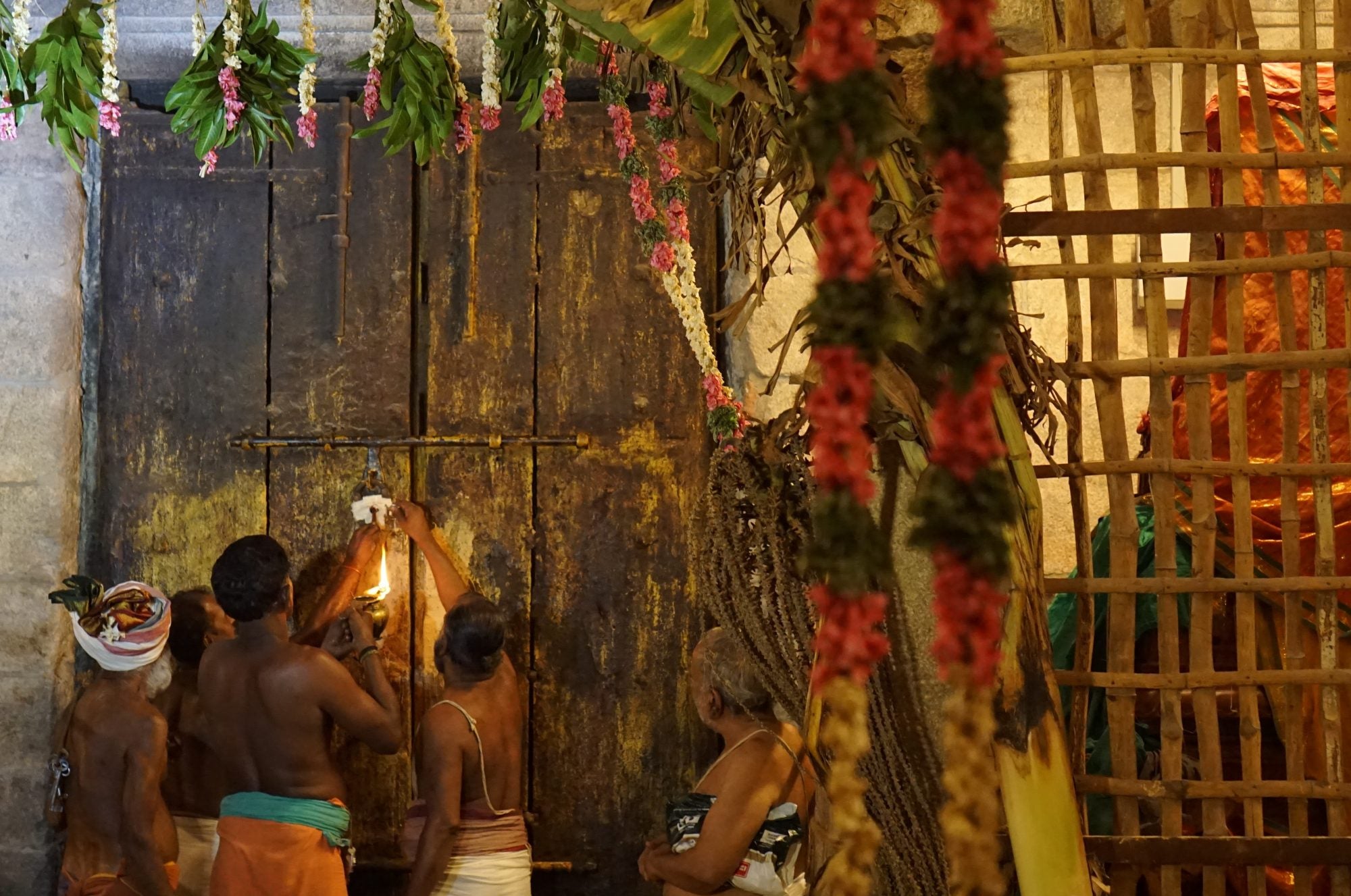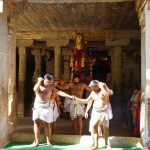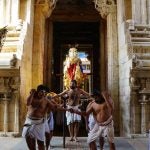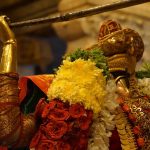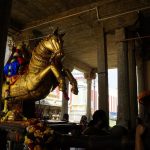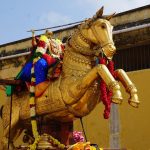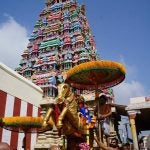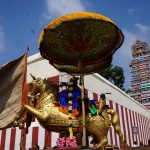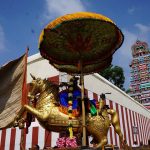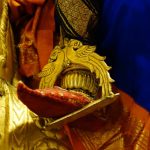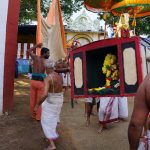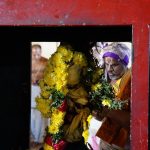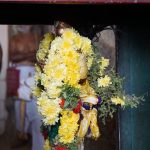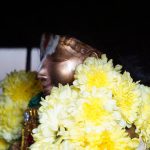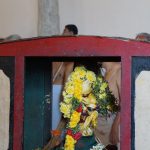Well, the Vetu Pari at Nanguneri is done. Unlike other places in the region, this temple hosts the festival in the morning. After a few days of rain, all the dust has cleared from the air, and the day was utterly glorious. The sky a blinding blue, and the sun brightly golden. Everything sparkled–the light glinting off the massive horse, his spear, the Sathari, and the god. Yet, Tirumankai was obscured, hidden inside his little palanquin. I didn’t think that was in error.
The festival is beautifully choreographed. The men hoist the immense horse on to their shoulders with a great cry and heave, and they move with delicacy, precision and sturdiness navigating their way through the temple corridor and out into the street. They move slowly, and it gives the feeling of a horse at a gentle canter. The drums are beating in a rhythm that mimics the clap of a horse’s hooves. Then suddenly, Tirumankai appears. He urgently circles Devanayakan three times–the god behind a screen is visible to us, but invisible to Tirumankai. He’s checking out all the jewels ready for thieving. The drums have changed their rhythms, and now the beats evoke urgency and piracy. The god evades him, Tirumankai gives chase, eventually cornering him (quite literally). He robs the god, and takes off at a great run (well, more like a leisurely trot), now the god in pursuit. The roles have been deliberately reversed, as have their positions relative to each other in the procession.
By the time they reach the mandapam right outside the main gopuram, Tirumankai has come to his senses, and realized who he’s robbed. Devanayakan too has shed his screen, and is visible. Tirumankai, though still remains in the dark and in shadow. Once he surrenders the wealth he’s stolen, returned what was never his to begin with, he moves forward, a little closer to the god towering above him. It was quite remarkable, and I am sure unplanned, that when they moved Tirumankai forward, he came under a beam of light and was suddenly visible even in the dark cave of his palanquin.
The Ira Pattu of the Adhyayanotsavam is a sober and somber affair. It’s a serious business reciting the Tiruvaymoli. The god descends every evening, and the feeling for the devotees gathered is awe–awe at god’s grandeur, and awe that the god of gods would choose to descend, to become familiar and knowable to simple folk.
The Vetu Pari Utsavam and the Mattayati that follows it tomorrow evoke a different kind of feeling, anubhava. There is delight, sheer, exuberant, joyous delight. Everyone is smiling, joking, laughing. They love the trick. They’re so happy to be in on the joke. They leave knowing, tomorrow, Devanayakan is going to be in trouble for his wanderings, and all the doors to the temple will be shut to him as he faces the wrath of his wife. I can hardly wait.
Photographs taken in public during the public processions with the permission of the temple authorities.
